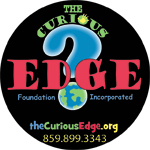What is Dyslexia?
By Kimberly Hudson
I am often asked by parents and educators, “Just what is dyslexia?”
Dyslexia is a learning disability, which is neurological in origin and presents as having difficulty in word recognition, spelling and decoding.
These difficulties are present despite having proper intelligence and being in a good learning environment.
Surprisingly, dyslexia affects one in five – that is 20% of the population.
There are three areas of the brain that are activated in normal readers.
Functional MRI’s have shown us that the dyslexic brain over-activates the frontal lobe but under-activates two posterior regions of the brain.
Disorganized nerve pathways prevent consistent activation of all three areas of the brain required for reading.
Dyslexia can be diagnosed by a qualified medical doctor, psychologist or speech-language pathologist.
There is no single test that can diagnose dyslexia.
A person’s developmental, medical, education and family history all have to be reviewed along with test scores, report cards, teacher comments and responses to academic interventions.
This information is then considered along with the results of a variety of standardized and non-standardized assessments.
There is a clinical marker evident in every piece of formal and informal data that a trained specialist knows how to identify as dyslexia.
Like any other area of expertise, it takes hours and hours of specialized instruction in addition to years of clinical experience to become a qualified specialist in the field of dyslexia.
It is also important to know how to differentiate between dyslexia, ADHD, auditory processing disorders and any other learning disability.
Once identified, dyslexia can be treated. Neural pathways in the brain can be built to help bring reading and spelling skills up to grade level.
The National Institutes of Health have conducted extensive research showing that an Orton-Gillingham based intervention is the only proven intervention strategy.
Parents, be encouraged!
Know that with the proper diagnosis and intervention, your child can receive the tools needed to succeed.
Your child will achieve all that you dreamed and more.
For a list of warning signs, please refer to:
http://thecuriousedge.com/programs-we-offer/reading-room/warning-signs-for-dyslexia/
Resources:
www.thecuriousedge.com
www.dyslexia.yale.edu
www.interdys.org
www.explore1in5.org
www.ncld.org
headstrongnation.org

